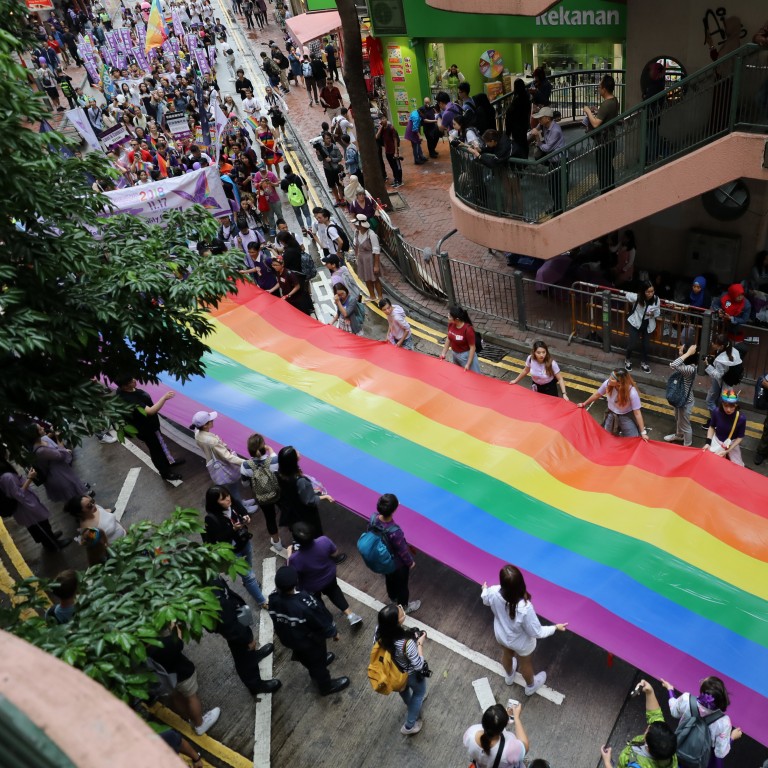
LGBT couples in Hong Kong are treated differently by the law in nearly 100 ways, report finds
- Equal Opportunities Commission looks at more than 1,700 provisions across 537 ordinances
- Spokesman says city’s ‘family status anti-discrimination laws only protect those who are recognised as married’
The report, which will be released to the public on Wednesday, was titled “The Recognition And Treatment of Relationships under Hong Kong Law”. It looked at 21 areas of comparison – from the rights of children and access to public welfare and services, to whether one would have to pay the fine for littering.
“The report considers the recognition and treatment of different types of relationship across all areas of Hong Kong law,” said Matt Bower, a partner at Allen & Overy, the law firm engaged to conduct the study on a pro bono basis.
It is very informative and raises a whole set of issues regarding the recognition and treatment of relationships
A spokesman for the commission said the report “highlighted that Hong Kong’s marital and family status anti-discrimination laws only protect those who are recognised as married by Hong Kong law”.
“It is very informative and raises a whole set of issues regarding the recognition and treatment of relationships under Hong Kong Law,” the spokesman said.
The study identified relevant legal provisions by searching for key terms such as “related persons”, “marital”, and “family”. In some of the more specific categories, including children’s rights, tax and land, specialised lawyers were brought in, Bower said.
In one example, people in what the report refers to as “alternative relationships” are barred from accessing almost all reproductive technology procedures in Hong Kong because the law allowed access only to legally married parties. Local laws also make it more difficult for same-sex couples to adopt children even though it is not legally impossible.
Top court to hear gay civil servant’s appeal seeking spousal benefits for husband
Hong Kong’s definition of marriage, under the marriage ordinance, is of one man and one woman to the exclusion of others .
People in alternative relationships also suffer from disadvantages on criminal investigations, according to the report. For example, they lack the right to not incriminate their husbands and wives. Same-sex couples also receive fewer tax benefits, the report said.
In critical cases involving organ transplants, people in alternative relationships need approval from the Human Organ Transplant Board, which could cause delays.
Regardless of the kind of relationship, victims of domestic violence can apply for a court injunction against his or her spouse or partner.
The report pointed to some scenarios in which same-sex couples enjoyed the perks of not being able to be legally married.
‘Now or never’ for same-sex marriage rights, as court challenge begins
Under Hong Kong law, the “occupier of a premises” could be found guilty of public littering if his or her spouse had done so. The same goes for letting one’s dog go to the bathroom on the streets.
Creditors are in a weaker position when trying to claim debts from alternative couples. The law requires a bankrupt person to pay his or her creditors first before repaying any debt owed to his or her spouse – but it does not govern spouses or partners not recognised under Hong Kong law.
“We hope the report provides a solid basis on which stakeholders interested in this area will consider next steps,” Bower said.
He added that he hoped the report would encourage discussion for law reform.

